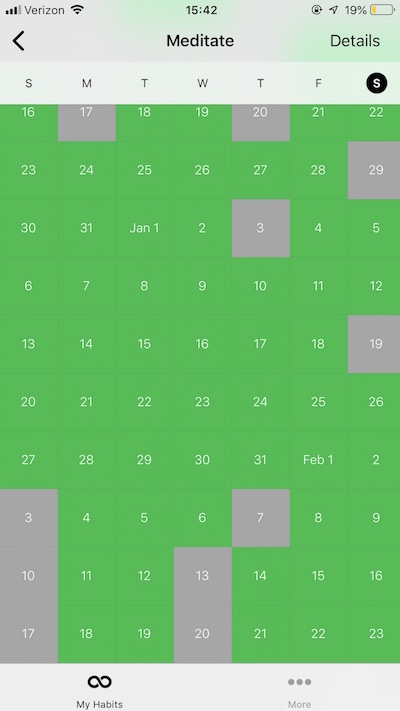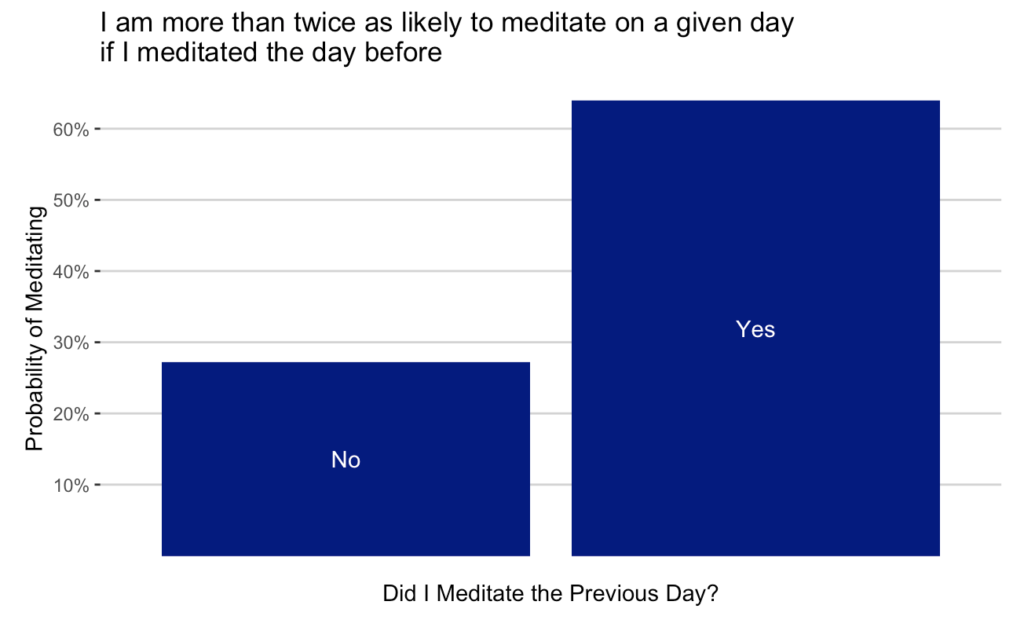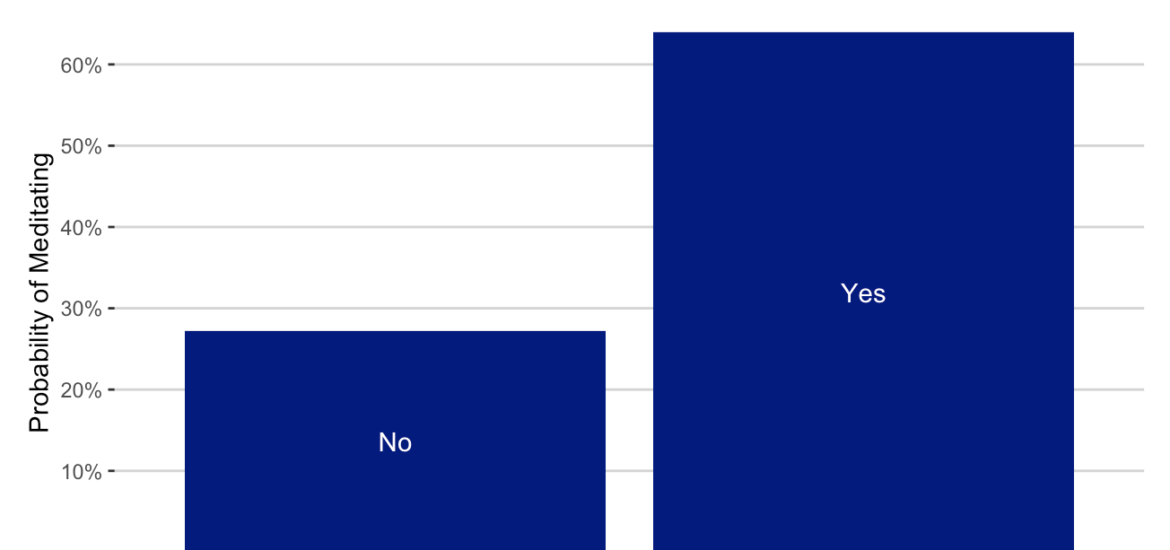Edit: If you are spending more time at home due to the pandemic, it is a good time to build new habits. You can control your environment and the triggers that help establish habits much easier now than you can when your routine is more varied.
I believe that getting good at habit formation is one of the most effective, high-leverage skills you can build. Almost any other skill or behavior follows from habits and so if you can understand how you build and fail to build and break and fail to break habits you can multiply your efforts in every other area.
About a year and a half ago I installed a simple habit-tracking app called Momentum. I did it because I was trying to meditate for 10 minutes each day and I wanted to track and incentivize the behavior.

I have done this with mixed success since then. I think that my track record with meditation is similar to many habits I have tried to build: there are times when I am quite good about it and then it moves to the back of my mind and I am inconsistent.
I have been interested in the science behind habit formation since reading Charles Duhigg’s wonderful book The Power of Habit several years ago and more recently James Clear’s Atomic Habits. These books have helped structure my thinking around habits and clarified strategies for them. But I think that most people intuitively grasp how powerful habits can be because they have experienced the difficulty of breaking bad habits and the satisfaction of mastering a good habit.
I wanted to analyze my progress and see if anything jumped out from the 18 months of habit tracking. I overcame my cognitive bias around paying for apps, bought the premium version of Momentum and exported my data. Here are some interesting things I found:

I expected to see an effect like this one but was surprised at the magnitude. To me it underscores the importance of consistency in that missing a day is not just missing a single day but also has potential negative ripple effects for the coming days.
Habits are much easier to complete when you are following a structured routine and my weekdays are generally much more structured than my weekends.
The things that I have taken away from reading and my own experimentation with habits that have helped me the most are as follows:
- Habits need a “trigger.” When I go to the gym, I will exercise and then take a sauna and after the sauna I’ll meditate. That trigger has been powerful and I’d guess that I’ve meditated on 90% of the days where I have gone to the gym. This is why I have had trouble meditating on weekends, when my days are less structured or I am traveling. There aren’t repeated, well-defined cues that prompt the behavior.
- Never miss two days in a row. Clear emphasizes this in Atomic Habits and it is valuable. Missing one day will happen, but when it does the next day becomes crucial to keeping the habit on track. The probability of me meditating drops dramatically if I am already behind. It seems like it is a lot easier to maintain a habit than to build it back up.
- Create a reward as close to the time of behavior as possible. The tighter the feedback loop between a behavior and a reward the more likely you are to form a habit around it. For me, hitting the little box on my habit tracker and seeing it turn green is the immediate reward and it has worked okay. I certainly think that I have meditated more than I would have had I not tracked the behavior. But I should try to think about a more powerful reward mechanism.
- EDIT: “Chaining” multiple habits is really powerful. Since doing this analysis I have discovered the power of adding habits on top of one another. If you have a habit that you are doing well at, track it each day and start a chain for it. Then add in a new habit that you want to build and track them both together. You won’t want to break the existing chain from your original habit and you will be more likely to pick up the new habit because it’s tied to your existing one. I am doing this now with meditation and writing each morning, and it is working well for me – I won’t want to break the 26-day meditation streak today because psychologically it will feel like I am also breaking my 47-day writing streak:

I highly recommend both The Power of Habit (a bit more theory) and Atomic Habits (a bit more applied). Both are fun to read and both can help a lot with habit formation.
Let me know if you have had success with any particular habit-building processes; you can email me at joe @ this website or message me on twitter.
I analyzed the exported Momentum data in R and Tableau; R code is available on github for those interested.
Thanks for reading. If you’re interested in this sort of thing, sign up below and I’ll email you when I write something new.
